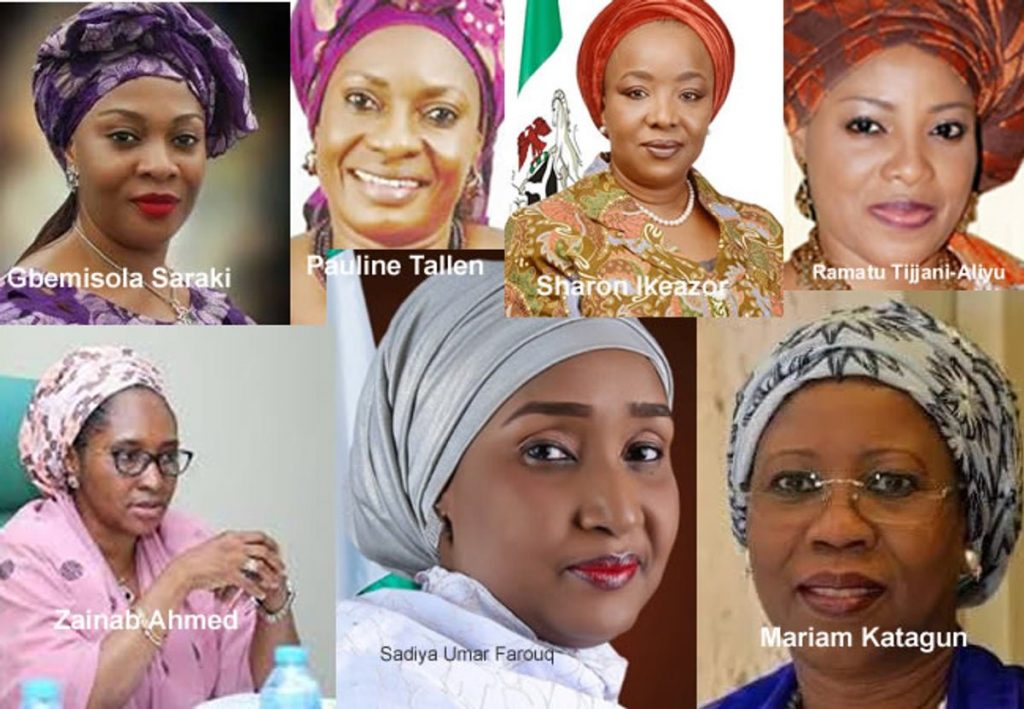Some female Nigeria politicians have faulted President Muhammadu Buhari over the ‘marginalisation’ of women in the ministerial nominees’ list sent to the Senate.
A former Osun State governorship candidate Mercy Ayodele said the number of women in the nominees’ list shows Buhari regarded women as insignificant in the country.
“Women have once again been marginalised,” Ayodele said.
The former governorship candidate, who affirmed that women were the highest people voters during the elections, called for a minimum of 15 women in the ministerial nominees’ list.
Also, a human rights activist and former People’s Democratic Party (PDP) aspirant for Kaduna State House of Assembly, Ndi Kato berated the ministerial nominees’ list.
“16.3 per cent representation is abysmal. It shows that this government has no regard for women,” Kato said.
She opined that Nigeria has an abundance of qualified women who have been disappointed in a ‘traumatic’ manner.
Former Borno State health commissioner, Salma Anas-Kolo, congratulated the women in the list.
“We expected at least 35 per cent of the ministerial appointees to be women. However, I am happy with the calibre of women appointed and I wish to congratulate them.”
Only seven women were part of the 43 persons nominated for a ministerial position.
Similarly, in 2015, 6 women were nominated out of 42 nominees by President Buhari.
The female nominees are Zainab Ahmed (Kaduna), a former finance minister, Paulen Talen (Plateau) a former deputy governor, Sharon Ikeazor (Anambra), the Executive Secretary of Pension Transitional Arrangement Directorate (PTAD) and Maryam Katagun (Bauchi), Nigeria’s Permanent Delegate to the United Nations Educational, Scientific and Cultural Organization (UNESCO).
Others are, Ramatu Tijjani (Kogi), former All Progressives Congress (APC) women national leader, Gbemisola Saraki (Kwara), former federal lawmaker and Sadiya Umar Faruk (Zamfara), the Federal Commissioner, National Commission for Refugees, Migrants and IDPs (NCFRMI).
